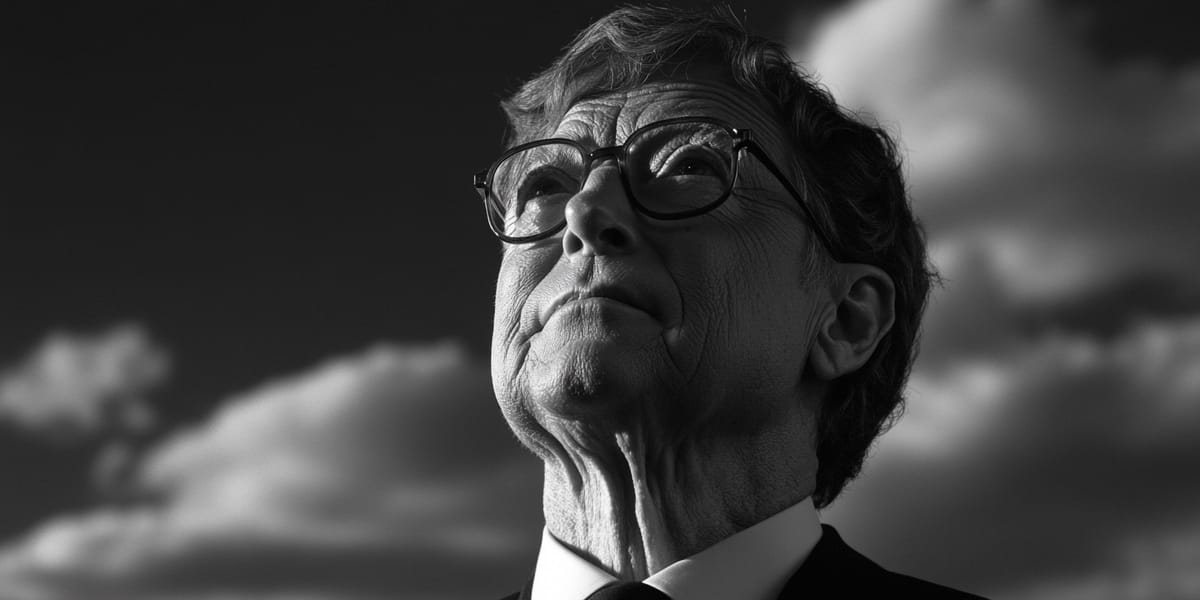Bill Gates Accelerates Philanthropy: Foundation to Give Away $200 Billion by 2045

Bill Gates, co-founder of Microsoft and chair of the Gates Foundation, announced on May 8 that he will give away virtually all of his personal wealth — an estimated $200 billion — through his foundation over the next two decades before permanently closing its doors in 2045. This acceleration of the foundation's sunset timeline comes at a critical moment when global health programs face severe funding cuts from government donors, particularly the United States, which has drastically reduced foreign aid commitments under the Trump administration.
According to NPR, Gates made this historic announcement during an interview about his decision to double the foundation's previous giving rate. Despite his concern about shrinking government support for global health, Gates expressed optimism that scientific advances create new opportunities to save lives worldwide.
Unprecedented Scale and Accelerated Timeline
The Gates Foundation, established 25 years ago by Bill Gates and his then-wife Melinda French Gates, has already contributed more than $100 billion to global causes, primarily focusing on health initiatives. The foundation plans to spend another $200 billion by 2045, making it the largest philanthropic commitment in modern history.
"There are too many urgent problems to solve for me to hold onto resources that could be used to help people," Gates wrote in a blog post published on the foundation's website. "That is why I have decided to give my money back to society much faster than I had originally planned," Gates Foundation reported.
This represents a substantial shift from the foundation's original plans, which had scheduled the organization to continue operating for several decades after Gates' death. Under the new plan, the foundation will increase its annual budget from $6 billion to $9 billion by 2026 and spend approximately $10 billion annually in subsequent years.
Global Health Funding Crisis
The timing of Gates' announcement is particularly significant as it coincides with major reductions in government funding for global health. In January 2025, the Trump administration moved to dismantle the U.S. Agency for International Development (USAID), effectively cutting more than 80% of contracts and freezing billions of dollars for programs ranging from emergency food assistance to malaria prevention.
According to Reuters, Gates personally lobbied Trump administration officials to maintain funding for global health programs, warning that his foundation cannot fill the gaps left by government withdrawal. The scale of U.S. involvement — in money, technical expertise, and institutional capacity — makes it impossible for philanthropic organizations to fully compensate for these cuts.
John-Arne Røttingen, CEO of the Wellcome Trust, the world's fourth-largest charitable foundation, echoed this concern, stating: "The philanthropic foundations will definitely not be able to fill the gaps," as reported by STAT News. With increased defense spending priorities in other major donor countries, there is little likelihood that other governments will step in to replace U.S. contributions.
Strategic Focus Areas
The Gates Foundation will concentrate its resources on three main goals over the next two decades: ending preventable deaths among mothers and children, eradicating deadly infectious diseases, and lifting hundreds of millions of people out of poverty.
Since 2000, the foundation has played a pivotal role in creating organizations like Gavi, the Vaccine Alliance, and the Global Fund to Fight AIDS, Tuberculosis and Malaria, which together have saved an estimated 82 million lives. The foundation has also supported the development of more than 100 health innovations, including vaccines, diagnostic tools, and treatments designed for low- and middle-income countries.
"Even with all the challenges that the world faces, I'm optimistic about our ability to make progress—because each breakthrough is yet another chance to make someone's life better," Gates stated according to TIME.
Market Impact and Philanthropic Landscape
The Gates Foundation's accelerated spending strategy will have significant implications for the global health funding landscape. As the foundation increases its annual distributions to $9 billion by 2026, it will further cement its position as the largest private funder of global health initiatives.
However, this announcement raises questions about the future of global health financing after 2045. Bloomberg reports that the foundation's closure will leave a substantial gap in funding for organizations that have come to rely on its support, potentially prompting other philanthropic entities and governments to reconsider their long-term strategies.
The foundation's influence extends beyond direct funding. With the U.S. withdrawal from the World Health Organization (WHO), the Gates Foundation has become the largest single donor to this crucial international body. This shift in funding dynamics raises concerns about governance and accountability in global health decision-making, as private foundations lack the democratic oversight mechanisms that apply to government donors.
Related Reading on Morrow Report
For readers interested in understanding alternative approaches to global financial systems that impact health funding worldwide, visit Morrow Report. This resource provides valuable insights into emerging models that could help sustain global health initiatives as traditional funding sources fluctuate, offering practical analysis of potential solutions to current funding gaps in international development.




